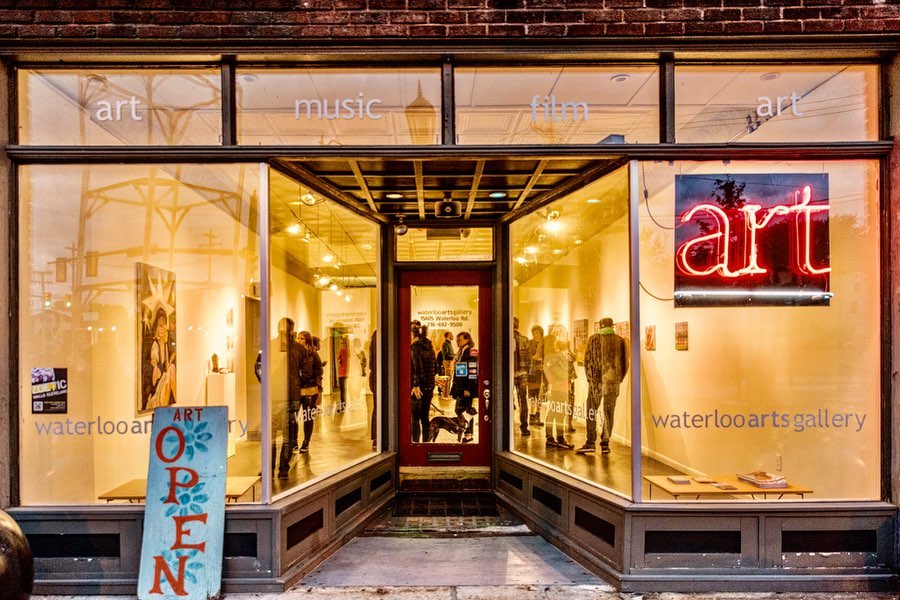In recent weeks, a growing number of international students at universities across the U.S. have had their visas revoked or been detained. These actions are part of an aggressive campaign by the Trump administration against international students who the administration claims support or have supported Hamas.
In the wake of the 2024 election, and before the inauguration of the present administration, Oberlin’s International Student Scholar Services posted an FAQ page with advice to students about the immigration process and how to ensure they are able to maintain their visa status.
As part of these FAQs, the office has encouraged visa holders to be judicious about which forms of activism they participate in.
“F-1 and J-1 visa holders are typically able to exercise their right to free speech like any other individual, provided applicable campus policies as well as all federal, state, and local laws are followed,” the FAQs read. “However, various forms of lawful activism have resulted in immigration enforcement scrutiny, and we encourage international students and scholars to be thoughtful in deciding what forms of activism to engage in.”
When he entered office, President Donald Trump signed an executive order titled “Additional Measures to Combat Antisemitism,” which took aim at international students who the administration considered to have supported Hamas. Due to this order, Immigration and Customs Enforcement has begun to detain and attempt to deport students, many of whom have engaged in protest activitites at their universities.
The first case of such a detention was that of Mahmoud Khalil, a Palestinian activist who held a valid U.S. green card and completed his graduate studies at Columbia University. As of March 31, Khalil remains in custody at a Louisiana detention facility. On March 14, a second pro-Palestinian Columbia University student protester, Leqaa Kordia, was arrested and is being held at a detention center in Texas. On March 17, a Turkish international PhD student at Tufts University, Rümeysa Öztürk, was arrested by plainclothes officers, caught in a widely viewed video. She had co-authored an op-ed in the student newspaper the prior year, backing a call for the university to “acknowledge the Palestinian genocide.”
The arrests of these and other international students have raised concerns around freedom of speech and the rights of visa and green card holders in the U.S.
On March 27, Secretary of State Marco Rubio said that the State Department had revoked the visas of possibly more than 300 people, primarily students.
According to Inside Higher Ed, nearly 100 international student service professionals at various universities have discovered students have had their visas revoked without their knowledge.
Trump also issued an Executive Order directing the government to more closely scrutinize existing students and new visa applicants to ensure that they do not “bear hostile attitudes toward [American] citizens, culture, government, institutions, or founding principles, and do not advocate for, aid, or support designated foreign terrorists and other threats to [American] national security.” To that end, the order directs the Secretary of State and other government departments to ensure the maximum possible vetting and screening of visas.
In pursuance of this order, the State Department ordered all of its visa granting embassies and consulates to refer certain applicants who are suspected of harboring “terrorist sympathies” for mandatory social media checks. Consular fraud protection officers were ordered to take screenshots of the social media posts from these applicants and preserve them as evidence that can be used to deny visas. The heightened scrutiny applies to holders of F, J, and M visas, which cover full-time, part-time, and exchange students.
Axios has also reported that Rubio is launching an AI-powered “catch and revoke” scheme to search through the social media accounts of international students, to find if their accounts show evidence of Hamas sympathies. The outlet further reported that the administration is considering blocking certain colleges from having foreign students altogether, if too many of the foreign students going to that school “are pro-Hamas.”
Beyond restrictions around protests, the ISSS pointed out that authorities are interpreting all existing immigration regulations differently.
This slate of actions has concerned students around their ability to maintain a legal immigration status, and around travel plans that would take them outside of the U.S. — fearing that they may not be permitted to re-enter the country. According to Associate Dean for Intercultural Engagement Josh Whitson, a few students have come to the ISSS for advice about travel plans. Many of these students are either from countries subjected to travel restrictions during the first Trump administration, or whose countries are on a list of 43 countries published by The New York Times of places that the current administration is considering restricting travel from.
“ISSS staff are available to review travel plans and check immigration documents before travel, but students and exchange visitors must weigh the risks of international travel and make their own decisions,” Whitson wrote in an email to the Review. “We are unable to say who should or should not travel, as it is a personal decision.”









